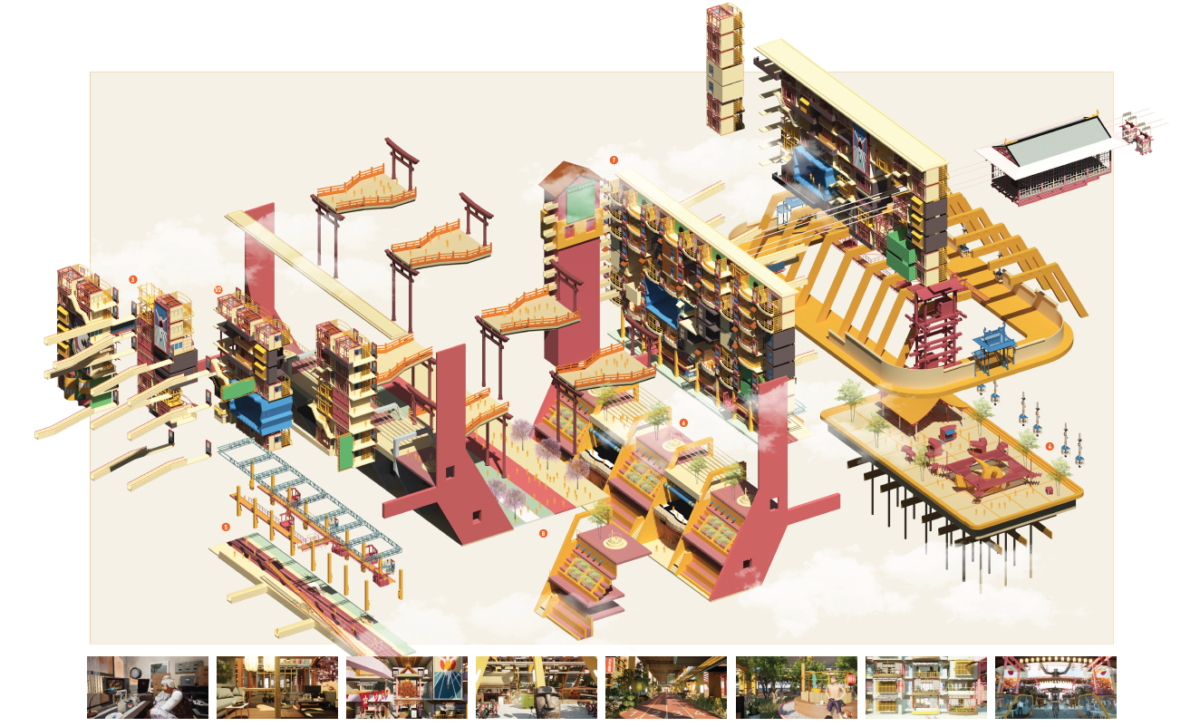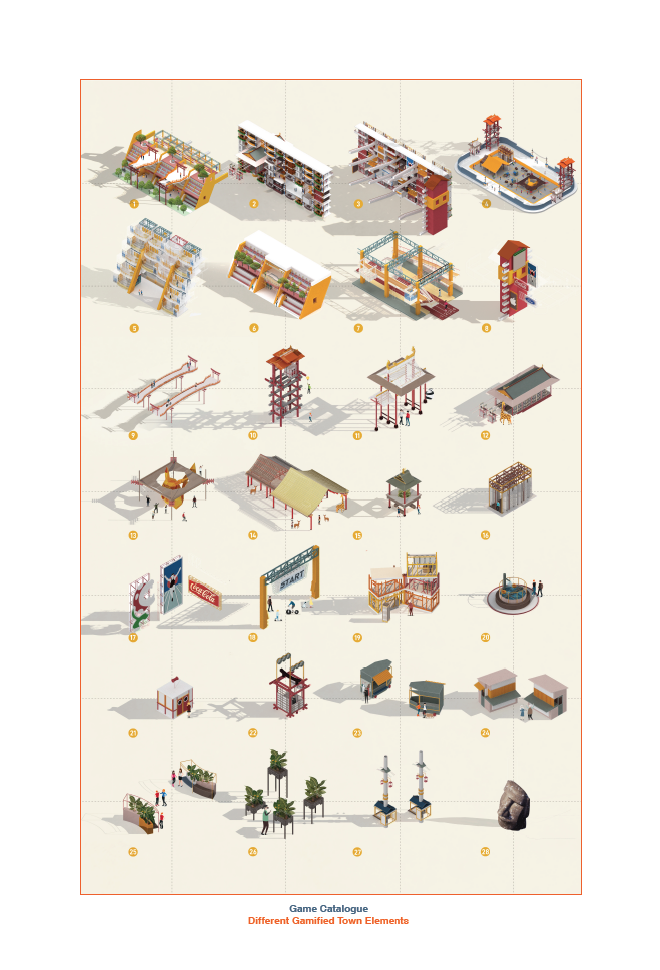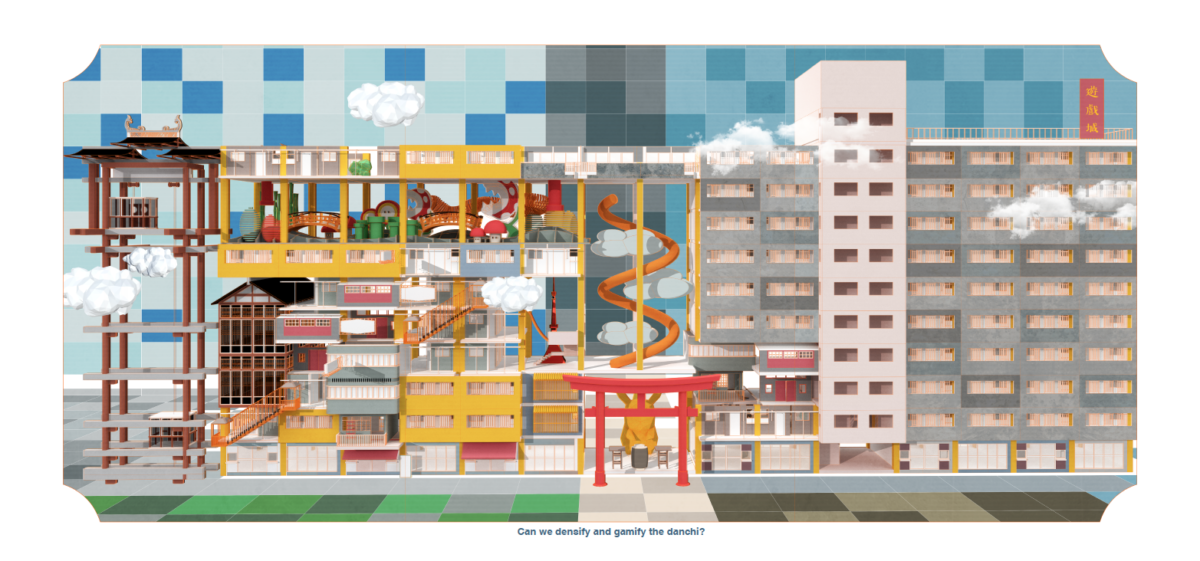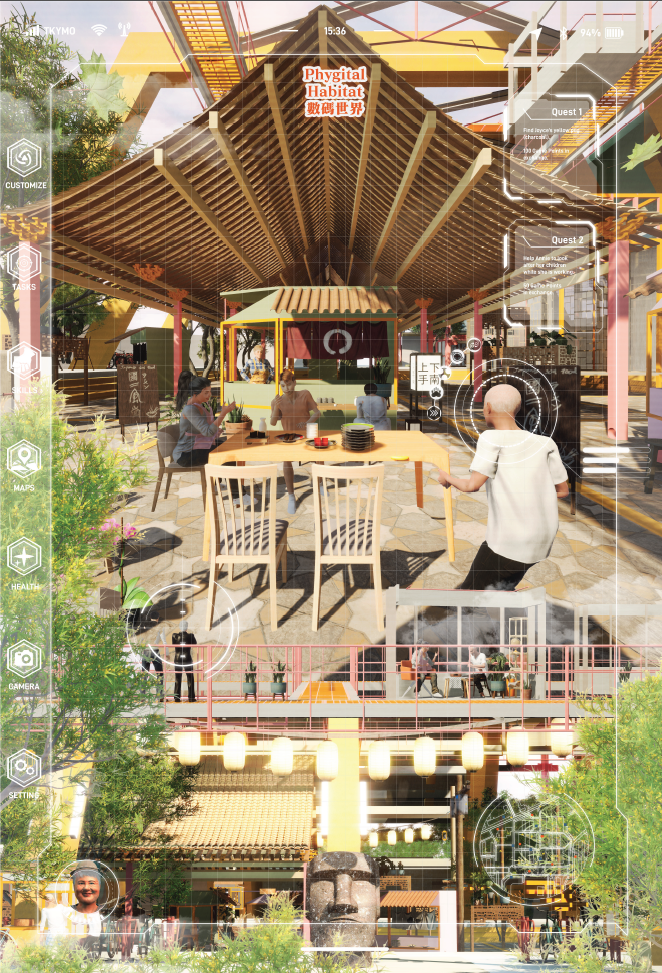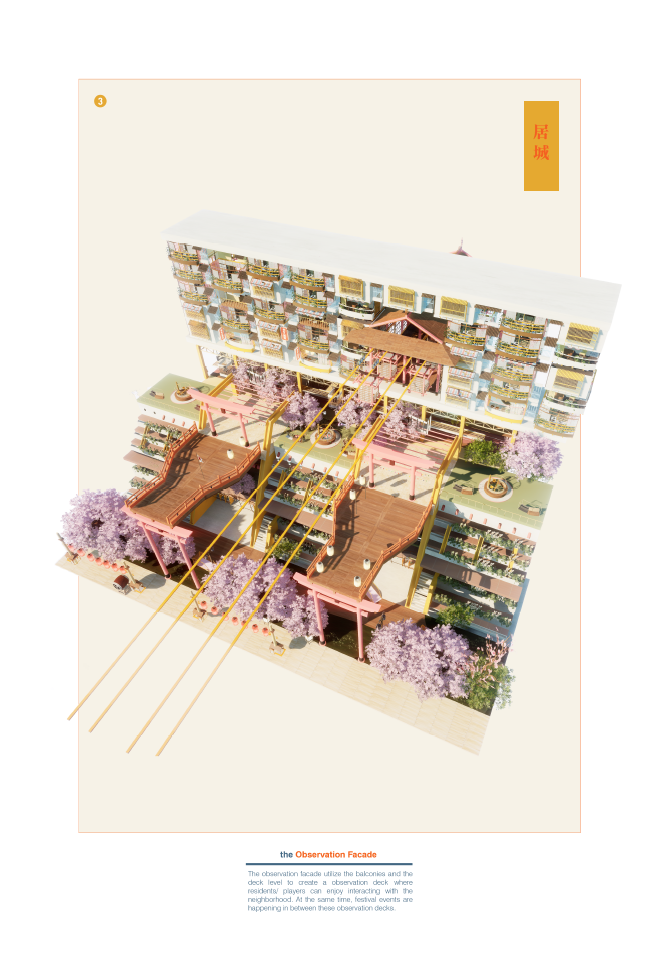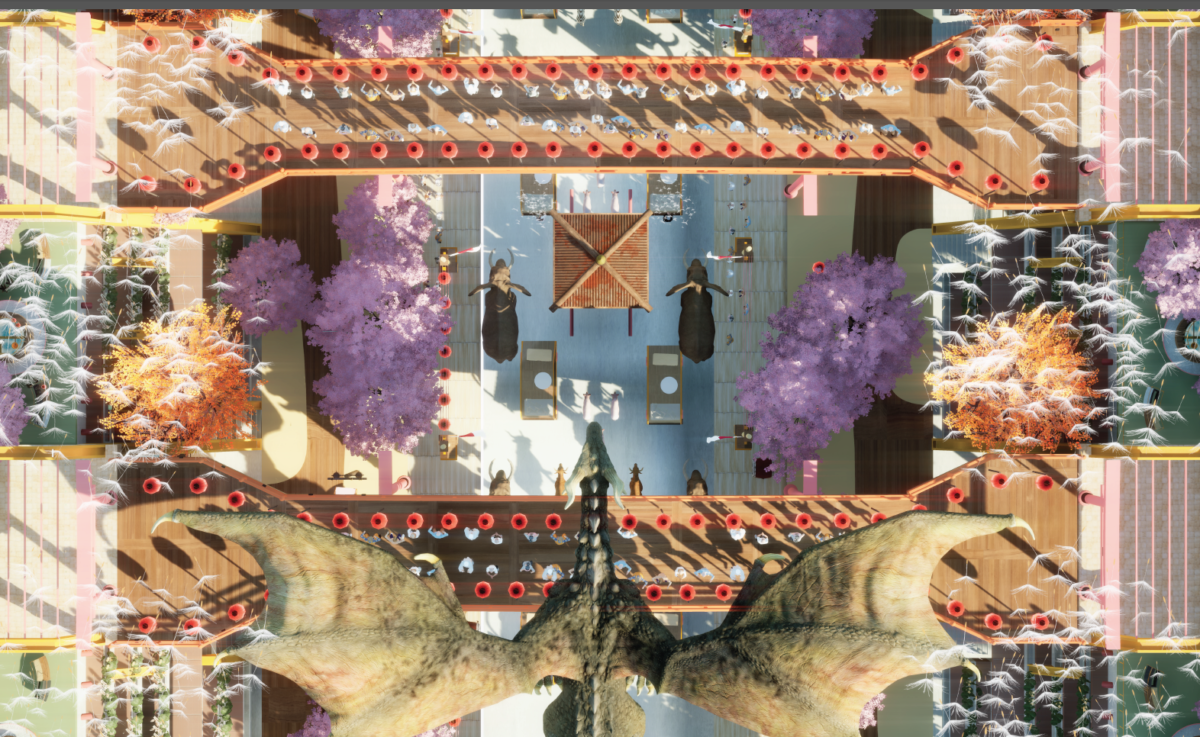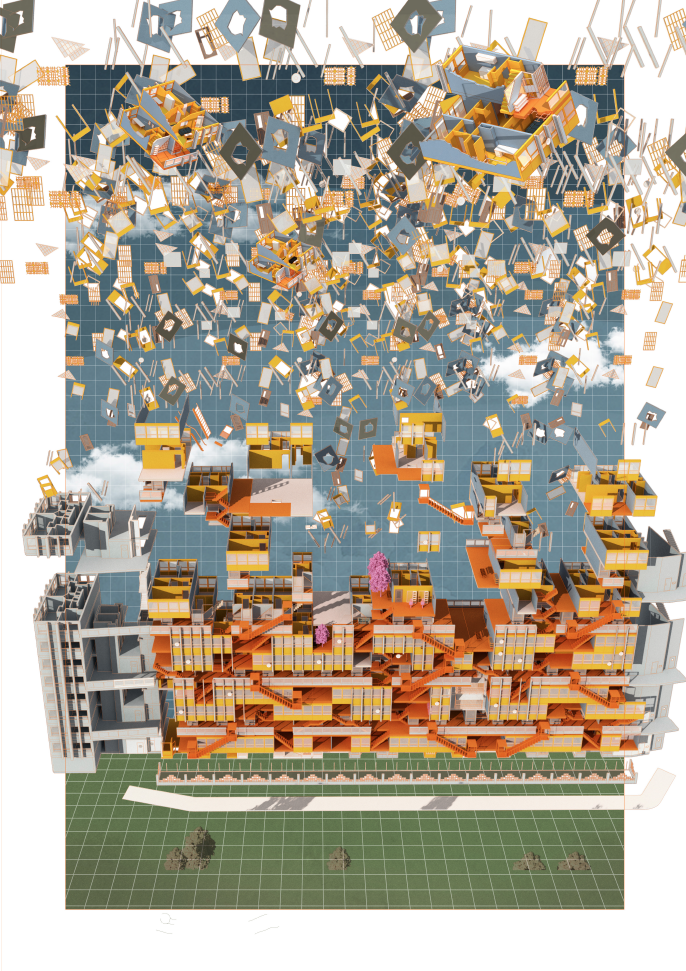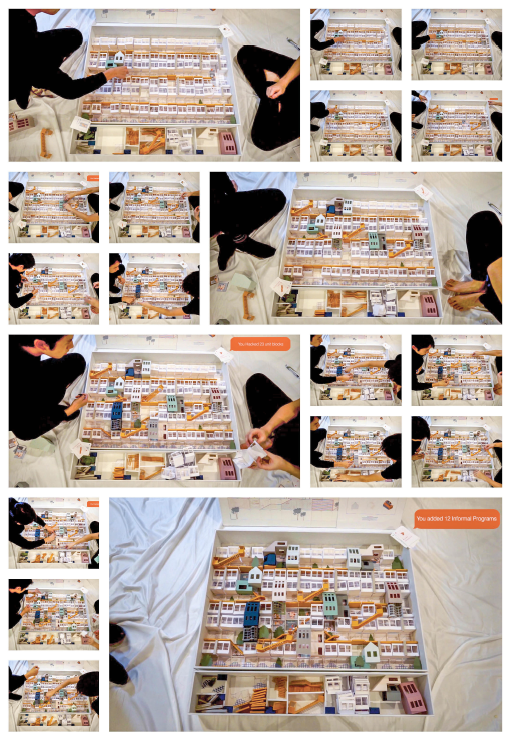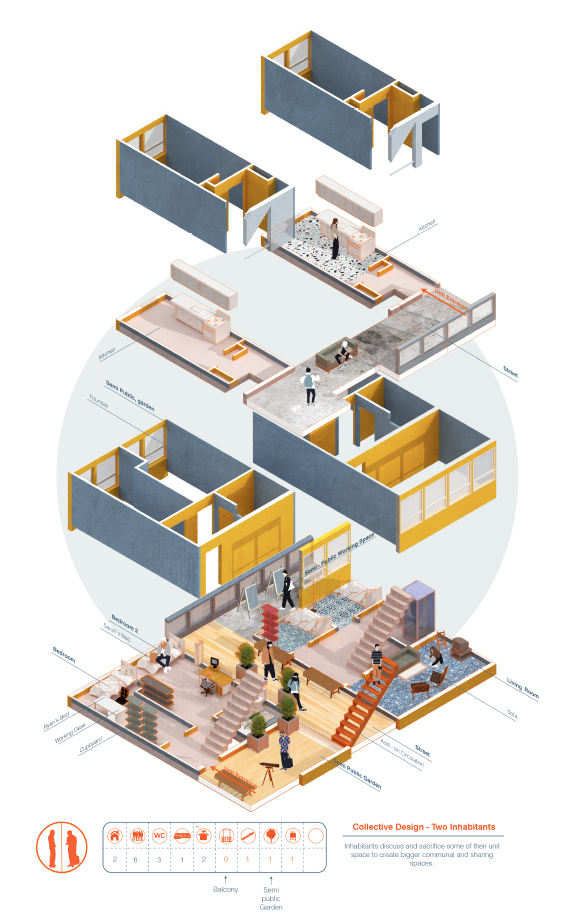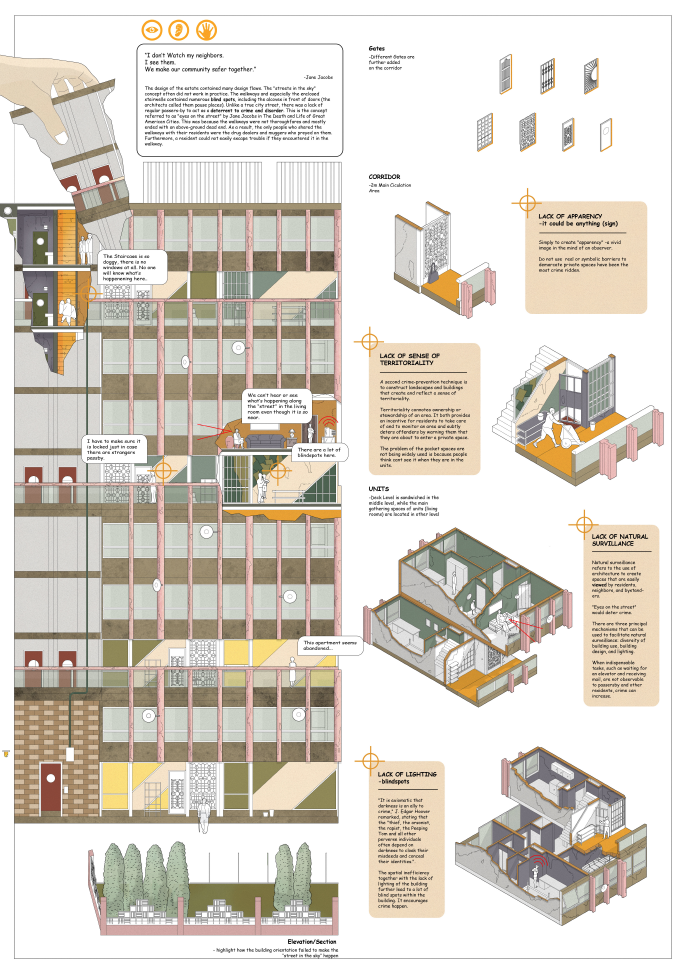Tag: tokyo
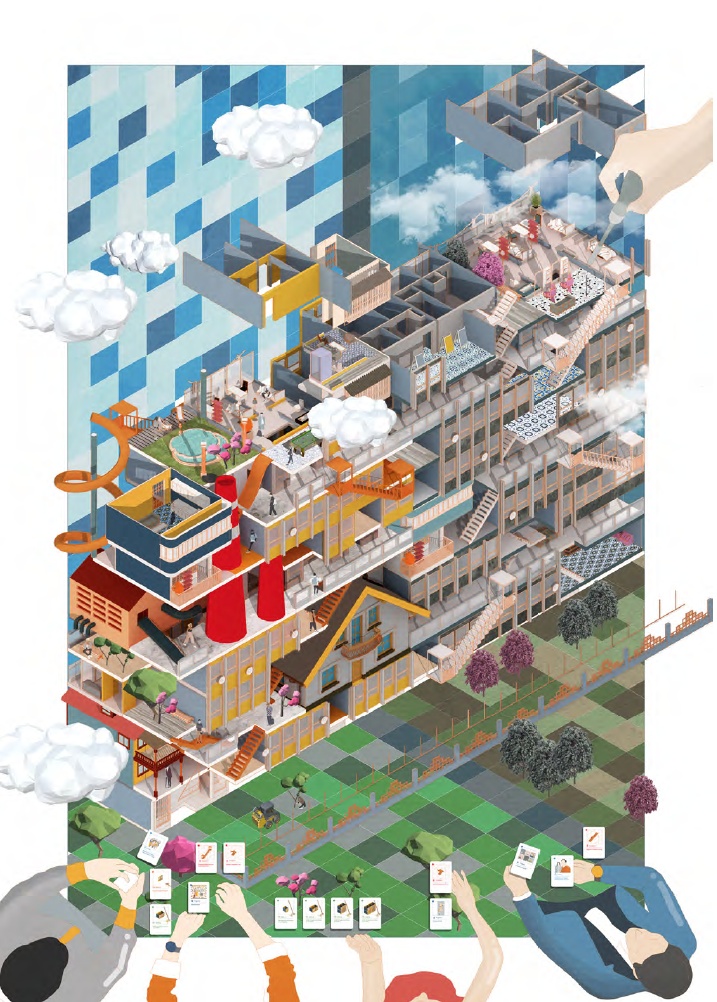
Design by Decoding – an investigation into Gamification as an Architectural Procedur
Hacking RHG
In project 1, I am interested in investigating how gaming ideas could inform new design methodologies. Under the strict building and maintenance rules of social housing in London, a lot of brutalist housing prototypes in London is being restricted and demolished so as to create more housing stock such as the Robin Hood Gardens. I am looking into how gamification would allow collective users (residents) to participate in the design under a bottom-up approach. The approach translates design principles into a board game to reimagine, repurpose and reconfigure spaces and materials found on-site. Besides, it also incorporates a variety of building rules, new addons, informal programs, and a new circulation system to reactivate the lost dream “street in the sky” for Robin Hood Gardens.
In a nutshell, “Hacking RHG” is a testbed showing how gaming can be used as a methodology to explore a different way that residents can engage with architecture. By playing against the rules, the algorithm of the game is turned into a planning system, capable of evaluating the best strategy of the collective bottom-up approach.
Phygital Habitat
Phygital Habitat uses video game elements and brings them into the physical world to solve real-life dilemmas. Through the introduction of mixed reality and gamification, the project provides a vision to utilize both to bring architecture and community back into life.
In Japan, there is a lot of post-war housing called Danchi. These buildings, once the representation of a generation’s memory and lifestyle, are succumbing to their fate as the nation’s vision of new building policies called for their demolition. The project not only speculates on an alternative way of living, but also saves the existing Danchi. It is a prototype which is capable for everyone, while providing both physical and virtual gaming and living experience.
Watch FILM ON YOUTUBE here:
